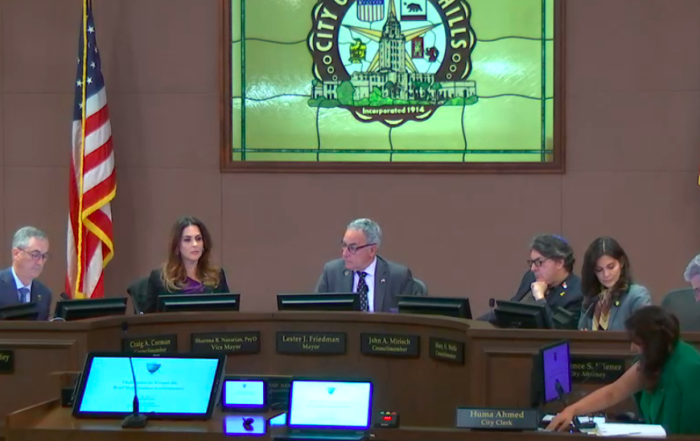It would of course be an exaggeration to say the debate over screenwriter contracts is as common as the debates over abortion or guns. But here in Los Angeles, the topic sure comes up quite frequently. The current work agreement, which was only a three-year deal, is set to expire on May 1, and on Monday we learned that the members of the Writers Guild of America (WGA) voted to authorize a strike with nearly 98 percent of members votes.
We believe, as we always do, that the writers deserve our support, and that the Alliance of Motion Picture and Television Producers (AMPTP) must meet their demands and pay both better and differently.
There are several things at issue. Among them:
- The WGA recently released the results of a large survey of its membership. One damning statistic was the fact that half of all writers who work in series television only make “scale,” which is the minimum allowable rate. Ten years ago, that applied to only one-third of all series writers
- In part due to the changing nature of series television, where we no longer see 22-episode seasons and more frequently see streaming series with eight to 12-episode seasons, fewer writers per show are being hired. But it isn’t just that. It’s more like too-few writers per show are being hired, expected to do a lot more work and for less pay. The industry is calling the new-look writer’s rooms “mini-rooms,” and the writers have had it
- The nature of streaming programming isn’t paying residuals, or royalties, at the rates writers had come to expect from traditional network programming, which generated these royalties by re-running episodes or selling shows to foreign markets. The L.A. Times recently reported examples of several writers who are seeing fractions of what they used to make in residuals, which used to pay into six-figure ranges, which would often help them live through leaner times. In addition, the streaming services don’t pay writers of successful, hit shows more for their success. They simply get residual payments based on some mysterious formula that the streamers hardly seem eager to reveal
- Some writers, who come from other professions before entering entertainment, also used to be able to earn additional money by coming on set to consult what they had written about given their first-career expertise. Many are now being asked to just write but not show up and earn for consulting on their subject expertise
Naturally, it’s the middle-class writers that are being hurt most, and an increasing number of screenwriters that would have once been considered upper middle-class can no longer say so.
The Steve Zaillians and Tony Kushners of the world are going to be fine. But the vast majority of WGA members are going to need to see greater income from this increasingly streaming world of movies and television. And let’s face it, the studios and streamers/technology companies that make up the membership of the AMPTP are raking in millions and can afford to pay more. How do we know? Because they are spending lavishly to create a catalog of programming that’s growing so vast that none of us can possibly keep up with everything being discussed around the office water cooler. It’s time for the AMPTP to stop hoarding the wealth and pay up. And that means hiring more writers and finding ways to pay them more.
The first thing they could do is agree to a new, open, and transparent formula for generating residual payments for streaming shows. They should do so in good faith with the leadership of the WGA, and if the sides can’t agree, an independent, third-party arbitrator should be selected to force a solution.
Second, the AMPTP should have to submit to a clause in any new work agreement with the WGA that subjects it to a “new medium trigger.” That is to say, just as streaming was once a new medium we weren’t sure would last, whatever “next thing” arises as a medium by which the public views its chosen programming in big numbers should trigger an immediate negotiation between the two sides to establish fees for content developed for it. Writers should not have to wait years for whatever current work agreement is in place to expire.
We might also humbly suggest that the WGA make sure there is some language in whatever new agreement is hammered out about Artificial Intelligence not being the featured screenwriter of content going forward.
We don’t have all the answers, and the little we propose above may not even be tenable. But it is clear that fewer and fewer aspiring writers are going to enter the industry if it doesn’t pay. Some are already having to pick up other gigs to remain screenwriters. And Los Angeles is not a cheap place to live.
The bottom line is this: The studios and streamers need to always remember that famous old adage, that no matter all of the other things that go into a movie or a television show, it all starts with a screenplay.
Photo by Waldemar
Stay informed. Sign up for The Westside Voice Newsletter
By clicking submit, you agree to share your email address with Westside Voice. We do not sell or share your information with anyone.








